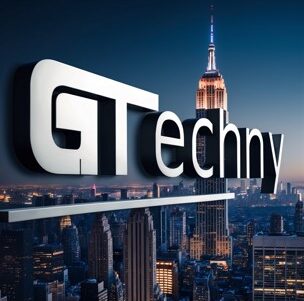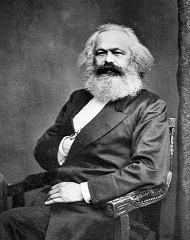It was long ago that the Grand Old Party (or as we now know it, GOP) was heavily focused on improving lives of average Americans. 1861 gave us Abraham Lincoln, and subsequent abolishment of slavery. Republicans advocated economic development of our country, and encouraged banking; infrastructure advances, like railroads; and put in place high tariffs to protect the American workers.
Fast forward to 2018, and the seemingly same high tariffs are now hurting the US economy, with the current White House offering the US farmers $12 billion dollars to temporarily help the US agriculture make it through some of the trade war’s costs. What’s worth noting, and is not that surprising, is that many of the farmers, as well as US Senators, are actually opposed to such a solution. Infrastructure improvement promises aren’t materializing or even being considered, despite this year’s report of over 55,000 bridges in need of repair, and anyone who’s ever driven on Manhattan roads can offer a few other examples. Gold, another GOP’s favorite, went up from $287 in 1997 to $1,1664 in 2012, but offered few resolutions, other than a safe haven for money, opposing financial instruments, like stocks.
Yet, all things change, and generally unwittingly, even if historically logically. The true test of this country didn’t happen during the WWII, when almost the entire world changed, but rather during a severe economic downturn we titled The Great Depression. That’s when a Democratic NY governor, whose name still belongs to the Eastern highway in Manhattan, Franklin D. Roosevelt, became the President. While the popular push by Democrats was to offer greater social government support to win voters’ approval, it was FDR’s New Deal, which saved the US economy, the US people, and cemented Democratic focus on the big government, as some form of Federal oversight proved necessary. Proof is in the pudding, they used to say, and as Democratic efforts saved our country in 1930s, GOPs political efforts to oppose those efforts, made Republicans the party of the ‘fiscally responsible’, or as we now know it, small government, yet plausibly opposing many of Democratic social initiatives.
Just as the struggles of The Great Depression pushed the politicians of those days to make certain adjustments, the comfort following The Great Recession of 2008 swung in a different direction, but with no less veracity. With a charismatic speech-giver at the helm, Barack Obama; first female Latin Supreme Court Judge, Sonia Sotomayor; legalization of gay marriages; legalization of medical and recreational use of marijuana in most states; rise in minimum wage initiatives; as well as the strongest financial and environmental regulations the US has ever seen in place; coupled with an almost pandemic in social media use and personal expressions, it seemed like our country was a bullet train rushing toward life improvement for the average citizen in ways Rousseau could have not even imagined. Naturally, the desire to buy a new iPhone every year was overwhelming even among the staunchest supporters of those initiatives, and every US driver has always enjoyed paying deeply discounted rates for gas. The cost of discounted gas wasn’t just the amount of oil the US purchases from other countries, but also the never-ending US military and other involvement in foreign countries. As Steve Jobs’ and Jeff Bezos’ wealth grew, average US consumer kept on contributing to income disparity by enjoying the convenience of Prime Delivery and iCloud. Just in 2012 alone, the top 1% saw their income increase by 20%, while the takehome earnings of the remaining 99% only went up by 1%, with the inflation rate of 3%, negating the blue and white collar worker’s wage increases, while lowering their purchasing ability.
Majority of the US voters, as all people, aren’t professional politicians. They are full of hope, faith in our system, and entitlement. We are a country of 326 million people out of 7.6 Billion people in the world, or less than 4.3% of the entire mass of people in the world. Seems small, till you look at the fact that we consume 24% of the world energy. USA also has 253 million cars in use vs about 212 million cars in use in China, which has more than 4 times the US population. Such high consumption of goods and services allows us to pay lower prices for goods, creating a feeling of being special, or entitlement. For instance, our average gas price is currently $2.83 per gallon, while in UK it’s about $5.79 per gallon and their energy consumption is about 11 times less than in the US.
We also ignore many social services calls, instead choosing to spend government money on other things to ‘protect our way of life’, as opposed to improving the quality of life for the average citizen. For instance, use of our military is crucial to us maintaining our standing in the world, be it military drills with South Korea, to keep North Korea at bay, or supporting Israel, to keep a strong opposition to other Middle Eastern powers, like Iran. The Republican Party has become representative of being fiscally responsible, with constant calls for cutting social services, like Medicare and Food Stamps. At the same time our country had a military spending of $598 Billion in 2015, or 54% of our entire budget, and Food Stamps program was just under $71 Billion in 2016, helping 14% of the entire population. It’s rather impossible to compare military spending and helping our citizens eat, but once you consider that the last time the United States of America got attacked, and military had to defend our own borders was a hundred years ago, during The Battle of Ambos Nogales. All attacks since then were terrorist acts, like 9/11 or attacks on our territories, like Battle of the Philippines in 1941. Of course the use of our military outside of our borders serves as a deterrent to many others, so it’s not a pure ‘social service’, but that’s the part when we are forced to start considering long-term effects and hypotheticals, as opposed to feeding the poor or similar.
Just like the ‘preventive’ use of our military certainly has an effect, services like free healthcare and free higher education have become hot topics of discussion, especially as Bernie Sanders threw his hat into the ring when he ran for President in 2016. Some say that he damaged Hillary Clinton’s reputation during primaries, thus making it easier for Donald Trump to win the electoral college. Still, no less people feel like it was Hillary’s actions, which prevented Bernie from taking on Trump in the final stretch of the Presidential race, and that was the reason Trump won.
Fast forward to ‘here and now’, with the entire country knee-deep in Muller’s investigation, and already super hungover with constant revelations of improprieties, which thus far meant very little in legal sense. The 2018 midterm elections coming up are a different story. While still seemingly lightyears away from being a true political contender capable of causing real change, Alexandria Ocasio-Cortez brought the concept of changing the way our country operates to the forefront once again, similarly to Bernie Sanders 2 years ago. Whether people scream MAGA or Yes We Can, it is clear that people want to see a change. Just like Barack Obama brought a lot of changes to the political landscape, so has Donald J Trump. While they seem like polar opposites, they both have one thing in common: they got elected to change this country. Still, their actions may seem crude to many, from legalizing gay marriages under Obama, which is seen as the ‘end of days’ moment by some; to separating little kids from parents at the border, which is seen by many as one of the most antihuman and unnecessary acts this country has produced in decades.
Nonetheless, none of the acts by our current or previous Presidents changed the fabric of our society and here is the reason: this country was build and developed as a super economic power. In 2016 alone our GDP was $18.57 trillion, while China’s GDP is $12.2 trillion at 4 times the US population and India’s GDP is only $2.6 trillion at about the same population rate. Things are changing, and no tariff wars will be able to change that. China is already beginning to make deals with Europe, which was impossible before, as the US oversaw those deals, and this is just the beginning. Trump’s attempt at changing things may or may not have a positive effect on our country in the long term. Moreover, everything may drastically change as we elect our next President, as it’s no secret that most political and economic powers don’t support trade wars.
What could be the next major economic change the United States of America will undertake? Could it be a turn toward what is now called ‘Democratic Socialism’? The initial concept of socialism dates back as far as Ancient Persia and Mazdak and Ancient Greece and Aristotle. The pragmatic changes of socialism thou were on full display in the former USSR. It was none but Soviet Union, which became the first country in the world to mandate no longer than an 8-hour work day, while most of the world’s workers were spending 15+ hours per day involved in their craft; free healthcare and free education for all; and even free housing for every citizen. There were many other similar reforms, which seemed to carry seemingly just positive changes for the masses. Yet the cost of it was high. Tens of millions of people were killed by Stalin; concentration camp-style so-called labor camps, titled Gulag, held millions of people, with many being sent there for political discourse.
Back to USA in this day and age, not a far away land of a hundred years ago, and the question remains the same: how do the ‘regular people’ enjoy the immense wealth this country has to offer? Perhaps it would be our own version of the same? New York State, for example, began offering free college education to most NY residents in return for residency and paying taxes in the state after graduation. Affordable Care Act has been in force since 2010 and has promoted Medicaid expansion, and thus free healthcare. We’re still a long way away from starting a revolution, similar to what happened in Russia in 1917, if at all, and the odds of seeing a portrait of Karl Marx in the White House are rather low. Yet the slogans like ‘rich get richer, poor get poorer’ are very relevant to our country now. Middle class, which for the first time ever constitutes less than half of our population now, have seen far slower income growth than the top 1% since 1980. It’s no longer just the genius of Bill Gates or Warren Buffet, which brings one man billions of dollars either. Today’s technology allowed people like Jeff Bezos, Sergey Brin, Mark Zuckerberg, and countless others, generate unheard of personal income. Entertainment field earned hundreds of millions or even billions of dollars for people like Oprah, Steven Spielberg, Michael Jordan, Diddy, and many more. While the sports marvels of Michael Jordan earned him $94 million dollars during his career as a basketball star, he made $1.4 billion dollars through endorsements and sponsorship deals, like for the Nike brand.
Does any single man need a billion dollars to ensure his own happy life, or that of his family? Does any man deserve such money simply for smiling next to a picture of a sneaker? These, and many other questions, will be asked and possibly answered, as our nation attempts to decide, if the oxymoron of capitalistic socialism, is the right and natural next step for our country. It won’t be an easy path to essentially turn our back on ‘our way of life’. While thinking of that, we should also consider, that only about 250 years ago ‘our way of life’ included slavery. Perhaps it’s not as farfetched of a concept as it seems.



